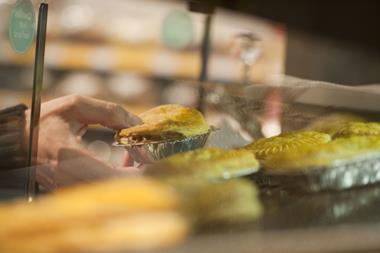The government has performed a partial U-turn on its proposed tax on hot take-away food following a public consultation.
Announced in last month’s Budget, Chancellor George Osborne had proposed that from October, retailers selling any type of hot food should pay 20% VAT. Any products served above ‘ambient’ temperature would have been eligible for the tax. It was expected to raise £105m for the Exchequer.
The decision was widely criticised by the retail industry and following a public consultation on the subject, the government has decided to scrap the tax on foods such as pasties and pies that are in the process of cooling down. Foods that are kept consistently hot such as rotisserie chickens will still be eligible for VAT.
A Treasury statement said: “After extensive engagement we have improved the policy, addressing practical concerns, ensuring that the new regime could be as simple as possible to apply.
“We have addressed these in a way that allows us to remove the inconsistent VAT treatment, while not imposing any additional requirement on businesses to test the temperature of their products.”
Association of Convenience Stores chief executive James Lowman welcomed the turnaround. “Government were right to identify that the current rules on hot food takeaway are confusing and open to inconsistent interpretation,” he said. “Unfortunately we did not believe the measure proposed would have delivered the clarity desired; nor could we support a measure that would have led to an overall increase in the cost of food to consumers.”
The decision was also welcomed by the British Retail Consortium. Director general Stephen Robertson said the turnaround would “produce less confusion for retailers and enforcers over when VAT is payable”.
The entire ‘pasty tax’ saga drew criticism from opposition leaders, with shadow Treasury minister Chris Leslie accusing the government of incompetence and arguing that itshould have launched a consultation on the subject before announcing the tax increase.
















No comments yet